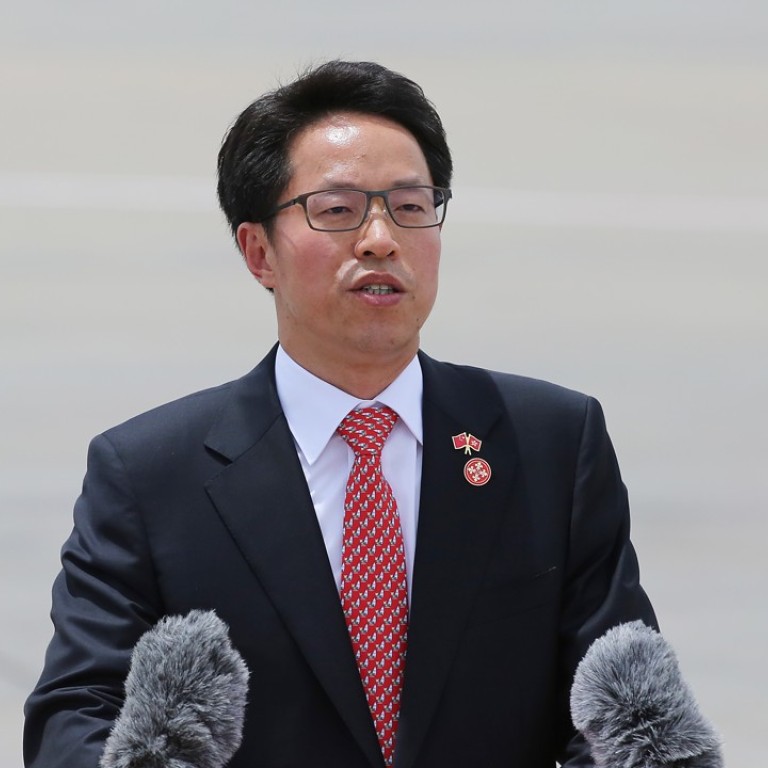
China’s top official on Hong Kong says his office must act as ‘guardian’ of ‘one country, two systems’ policy
Zhang Xiaoming, director of the Hong Kong and Macau Affairs Office, says it must redefine its roles and be a ‘dear close friend’ to the two cities
Beijing’s top official overseeing Hong Kong and Macau affairs has pledged to adopt an “innovative and creative” attitude in coping with difficulties that arise in the cities, warning against being too “idealistic, simplistic and emotional”.
Zhang Xiaoming, director of the State Council’s Hong Kong and Macau Affairs Office (HKMAO), also defined the roles of his office “in this new era” as being the “dear close friend” of Hong Kong and Macau residents, and the “guardian” of Beijing’s “one country, two systems” policy.
Zhang was addressing about 180 current and former HKMAO workers at a conference on Thursday in Beijing to mark the 40th anniversary of China’s opening up.
The so-called reform and opening up was initiated by the late leader Deng Xiaoping in 1978. The economic changes were so far-reaching that Deng was honoured as the “chief architect of China’s economic reforms and China’s socialist modernisation”.
Zhang said: “Just like other great businesses that are bound to face difficulties, the implementation of one country, two systems is not plain sailing either. [The policy] itself already contained some contradictions. And some problems have been left despite the smooth transition of sovereignty.”
He stressed that “when we deal with these issues and problems, we should avoid being idealistic, simplistic and emotional”.
We should act as the guardian of the one country, two systems policy, and act as the dear close friend of [our] Hong Kong and Macau compatriots
He added the office should acknowledge the difficulty and complexity of the work regarding Hong Kong and Macau and said the office should approach it in a proactive manner, with an “innovative and creative” attitude.
In addition to being the “adviser and assistant” of the central government in dealing with Hong Kong and Macau affairs, and a “facilitator” of Hong Kong’s integration with national development, he said: “We should act as the guardian of the one country, two systems policy, and act as the dear close friend of [our] Hong Kong and Macau compatriots.”
In Hong Kong, China watcher Hui Ching, research director at the Hong Kong Zhi Ming Institute, believed Zhang was mainly referring to the post-handover development of Hong Kong although he also mentioned Macau in his speech.
But Hui said Zhang should be careful when conveying their message, to avoid giving the impression that his office wanted to become “the other government” of Hong Kong.
“Being the middleman between Beijing and Hong Kong should be no problem. But it should not take an active part in Hong Kong affairs,” Hui said.
Zhang was appointed in 2012 as the director of the central government liaison office in Hong Kong. In 2013, he became the first liaison office director to accept an invitation to have lunch with Hong Kong legislators. More than 50, including many opposition lawmakers, attended the event.
He was appointed the director of the HKMAO last year, replacing career diplomat Wang Guangya, who retired.
In his speech, he also attributed the success of the smooth transition of Hong Kong sovereignty in 1997 and that of Macau in 1999, and the successful implementation of the one country two systems policy in Hong Kong and Macau, to the hard work of his predecessors and the leadership of the party.

